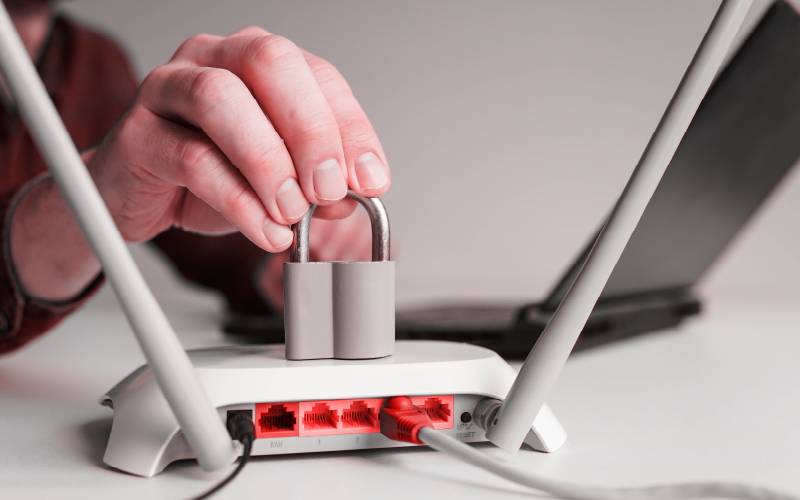We love the internet. Whether we’re placing insomnia-fueled eBay bids on action figures from our childhoods, emailing the latest Taylor Swift conspiracy theory to our best friend, or just paying our electric bill, being online makes our lives more fun, more connected and a whole lot easier.
Unfortunately, there are countless creeps who love that we love the internet — and who would love to swipe our personal information. Last year saw a record-breaking number of data breaches, which increased 20% between 2022 and 2023, so, if we’re going to live digitally (and how can we not?), we need to be vigilant about protecting our privacy.
We can start locking down our information by looking at how secure the internet in our own homes is.
“You will probably not be shocked to hear that we’re the problem on this one,†Alysa Hutnik, a privacy lawyer with Kelley, Drye & Warren LLP in Washington, D.C., told us — Raj Punjabi and Noah Michelson, hosts of HuffPost’s “Am I Doing It Wrong?†podcast. “It’s usually human error in how you set it up and how you manage your Wi-Fi.â€
The first thing Hutnik advised we immediately do is check our router settings.
“You get it out of the box — don’t leave yourself with the default factory settings because guess what? Those are public, right?†she warned. “It’s really easy for hackers to get into. You’re able to change those factory settings, including your password, and so setting up a really strong password and not having the default is super important.â€
Next, we want to ensure we’re using encrypted settings.
“Usually somewhere in [your settings], there’s [an option to choose] “WPA,†or Wireless Protected Access,†she said. “You can just enable that, and that’s essentially like, you’re not leaving your front door open, right? You wouldn’t do that in real life.â€
Hutnik recommended that checking our settings doesn’t stop at our routers.
“Anytime you’re buying technology, go to settings,†she said. “Usually there’s a privacy option and a security option ... spend 60 seconds just exploring what those options are. Companies are getting so much better — we’ve got a whole lot of new [privacy] laws — so they are offering new options. [These protective settings] may not be default, but you can certainly turn them on.â€
Hutnik had loads of other potent privacy tips, including this one that takes only a second.
“[I am] paranoid as a privacy lawyer,†Hutnik told us. “I like to keep [my webcam] covered if I’m not intentionally using it. There is potential of malware where your device can be taken over [and hackers could use your camera to see into your home].â€
She covers her cam with a Post-it note or a sticker when it’s not in use, and if she’s done working on her laptop, she always closes it.
“These are just things to think about — again, you’re mitigating risk. It doesn’t mean that you are going to get hacked, but I would rather somebody not see into my room if I can avoid it.â€
We also discussed how to make your passwords the strongest they can be, which setting on her phone she almost always turns off, and much more.




No comments yet
Be the first to share your thoughts!